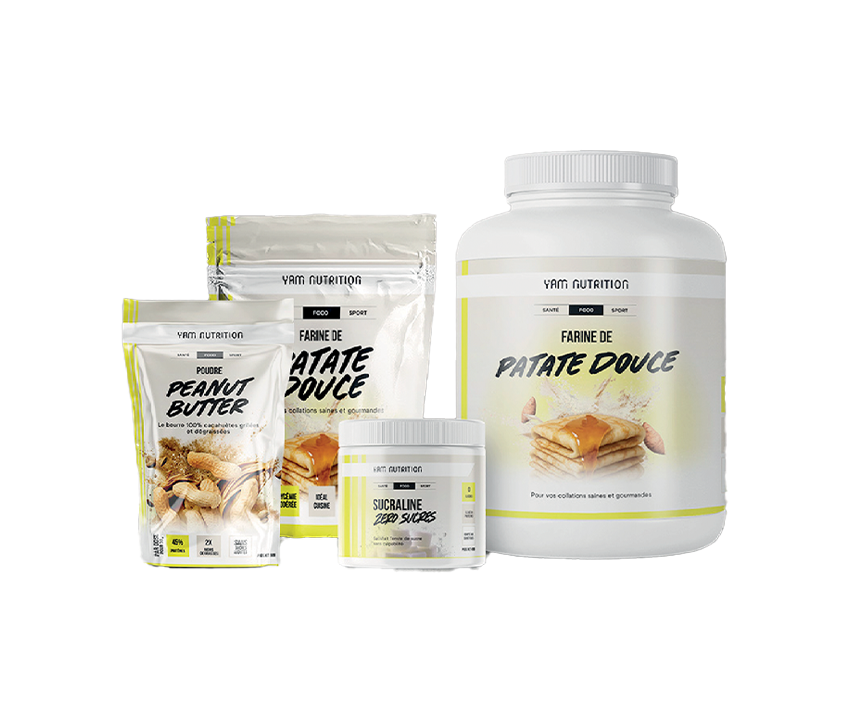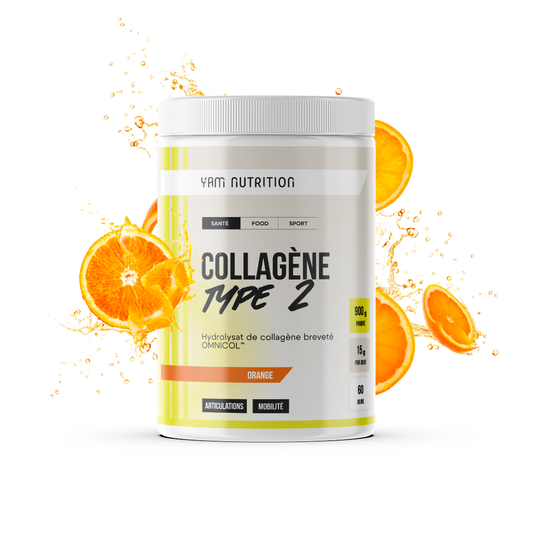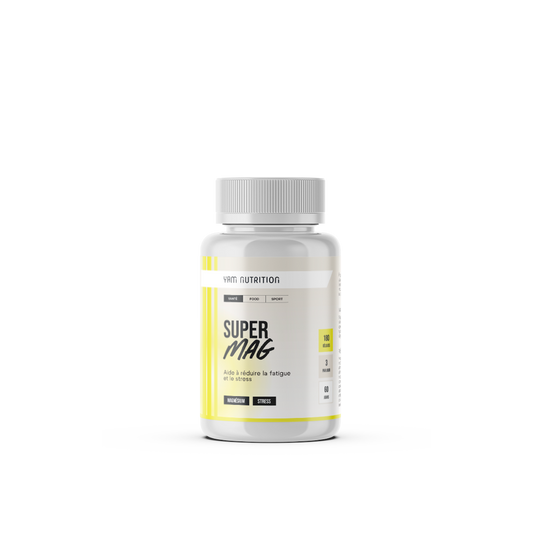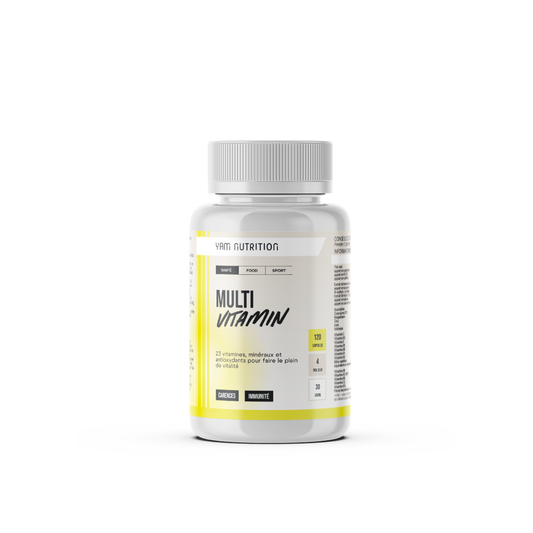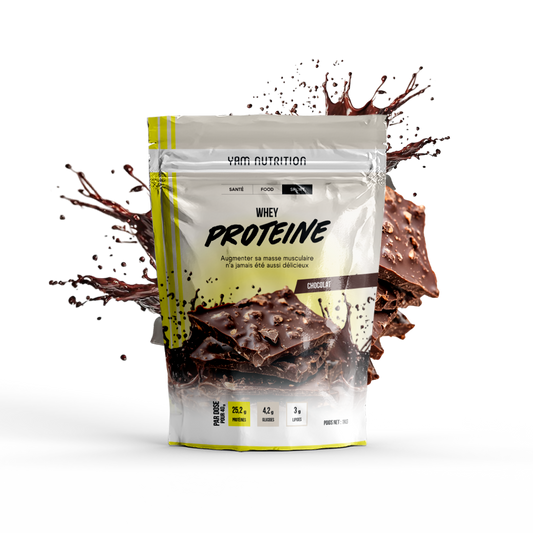Can glycine and collagen be combined, taken separately, or only one of them?

Collagen is a structural protein in which glycine is omnipresent. Collagen fibers are made up primarily of glycine, representing one in three amino acids. As for glycine itself, it is the simplest amino molecule among the 22 amino acids recognized by our genetic code. Glycine is an amino acid that is involved in a significant number of metabolisms, not just collagen synthesis. In this case, we will first list them before looking more specifically at collagen.
OMNICOL™ Patented Collagen Hydrolysate A complex of 23 vitamins, minerals and antioxidants to boost your vitality Building muscle mass has never been so delicious
Collagen Type 2 Powder
Sale price
From 49,90 €
Multivitamin
Sale price
29,90 €
Whey Protein
Sale price
From 37,90 €
Glycine, an amino acid more essential than you might think...
Our bodies can synthesize glycine, but they generally don't produce enough of it. Deficiencies in this amino acid are estimated to average between 6 and 10 grams per day. This isn't just a claim, as it has been proven by scientific research. Researchers conducted research on aging elephants suffering from osteoarthritis because they wanted to understand why. They then compared their results to other mammals and then to humans, arriving at a common point: large mammals don't synthesize enough glycine due to a genetic defect.
On this point, glycine is also involved in multiple cellular and organic processes. This would explain chronic deficiencies in humans, in addition to the fact that this lack is linked to a genetic cause. Genetics is involved but it does not explain everything, especially in humans. Indeed, aging and the practice of high-intensity exercise contribute to a significant decrease in the presence of this amino acid. This would partly explain the appearance of joint disorders such as arthritis, for example. In sports, glycine is partly involved in energy, on the one hand as a raw material for the synthesis of creatine and on the other hand, as a glucoforming substrate (formation of glucose from amino acids). By adding the essential participation of glycine in the synthesis of collagen, an essential structural protein, it is not difficult to understand that it is certainly one of the first amino acids to be supplemented by athletes, with leucine for example.
Glycine, the amino acid essential for the synthesis of collagen fibers...
As we said, glycine is involved in the synthesis of collagen , a protein involved in the health and renewal of the skin, joints, and mechanical integrity of the human body. In addition, glycine is also involved in the production of bile and bile acids, which allow the breakdown of fatty acids. Furthermore, the interest in glycine does not stop there. Indeed, glycine opposes the increase in homocysteine, a derivative of cysteine that may not be without consequences for health. Glycine helps restore balance by opposing methionine and therefore reduces the risk of increased homocysteine in the blood. As you can see, glycine is one of the most essential amino acids, even if strangely, it is not considered “essential.” This is precisely why we often recommend taking glycine, just as much as you would your multivitamin as a first-line supplement. But what exactly is collagen? Does it overlap with glycine? Can we combine these two supplements, and in what cases?
Collagen, a protein that is good to remember...
Your body synthesizes collagen constantly, from glycine. Each fiber of this protein repeats one glycine every three amino acids, which also explains why the endogenous production of collagen draws heavily on glycine intake. From this, it is fairly accurate to say that taking a collagen supplement effectively saves dietary glycine intake, providing in addition hydroxylysine and hydroxyproline, which are two amino acids specific to this protein (albeit in small amounts). Technically speaking, the addition of a hydroxyl group allows lysine and proline to attach to the peptide to form the fibers.
Once you drink your protein, the hydrolyzed collagen peptides will then fuel the body, facilitating the endogenous synthesis of this protein. However, indirect glycine intake could also be used for other functions. However, scientific experience shows that providing collagen to your body leads to increased synthesis of its own collagen, for the most part. This is quite logical since the sum of amino acids (aminogram) corresponds to those of your own collagen. Note that taking collagen can be useful when you suffer from joint pain. There are countless clinical studies that confirm this. Intense weight training, cross training, or sports that involve repeated shocks can sometimes create joint problems. Collagen then helps reduce symptoms and contribute to the recovery of the integrity of affected tissues, tendons, and ligaments.
When should glycine be combined with collagen?
Combining collagen and glycine could prove useful in cases of fairly severe osteoarthritis in order to provide an optimal amount of amino acids to your joints and joint tissues. This combination would also eliminate or significantly reduce chronic glycine deficiencies, one of the most often overlooked health factors, given the importance of this amino acid for our bodies. Its importance is such that glycine has also been the subject of scientific research on longevity with animals. An increased intake of glycine has demonstrated a significant increase in longevity in rats. This gain in terms of lifespan was reflected in a decrease in insulin, triglyceride and blood glucose levels, as well as better homocysteine control, largely explaining this phenomenon.
In most cases, it would be a good idea to take a glycine supplement as a base and then add collagen for your joints, skin health , and normal connective tissue renewal. Remember, creatine synthesis also requires glycine!
Yam Nutrition
Eric MALLET
Spécialiste en Nutrition Sportive
